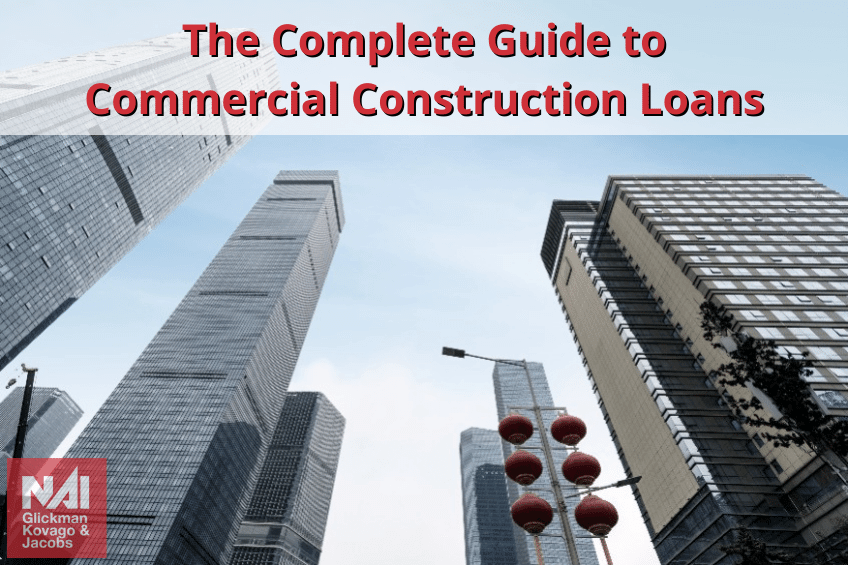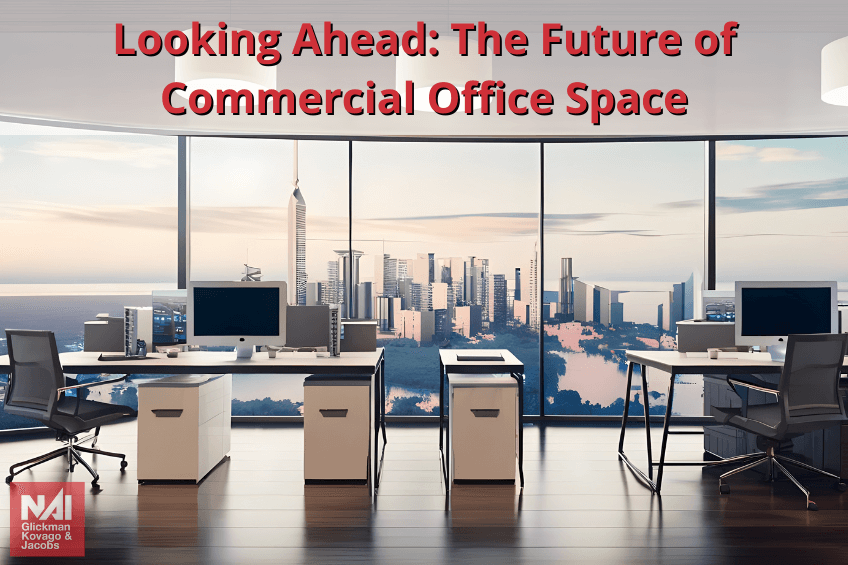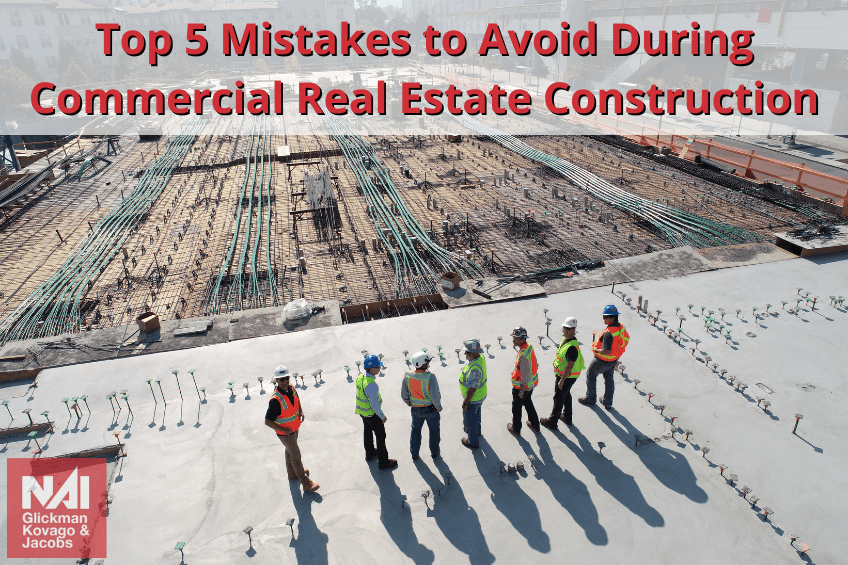Are you looking for commercial construction loans? A commercial real estate project typically requires a large amount of capital and extended construction services. Only some enterprises have the capital readily available to fund a project themselves. Getting a commercial real estate loan and understanding how it works is crucial for anyone in the business.
Fortunately, understanding how these loans work and how to choose the best type of loan for your project is relatively easy if you have the right team of professionals working with you.
What Is a Commercial Construction Loan?
A commercial construction loan is a business loan used to finance the construction or renovation of a commercial real estate property. A company needs more funds to pay for such a project with cash, as opposed to more flexible home construction. Therefore, a loan of this type is used in almost every commercial real estate construction project.
Commercial construction loans typically require detailed construction plans in underwriting, so before a loan happens, a construction management company will need to consult to complete formal plans. Prospective property managers also look for these types of loans before renovating their real estate.
How to Apply for a Commercial Construction Loan
Applying for a commercial construction loan is slightly different from applying for a loan to build a home. The bank will require more paperwork than a typical personal loan application.
To qualify for a real estate construction loan, the borrower must establish their creditworthiness. If a business is new and does not have an established credit history, the loan may be secured using the business owner’s credit.
The bank will require at least two years of tax records, profit and loss statements, and detailed construction plans showing cost and time-to-completion estimates.
Similar to a personal mortgage loan, the bank wants to be reasonably sure that the business will be able to make the monthly payments for the loan’s term. The more qualified the buyer or buyers are, the more favorable the loan terms will be.
Are you looking to develop a real estate construction plan?
Types of Commercial Construction Loans
Several types of commercial construction loans are available, each with a specific purpose. Banks that offer commercial loans typically require a downpayment of at least 10%, although it is often higher and depends on the underwriting completed by the bank. Most loans have a 25-year term and may come with fixed or variable rates. On variable-rate loans, the rate is usually fixed for the first few years and may adjust later if the rate declines or rises.
The Small Business Administration is a common source of financial assistance for construction management. Often, the down payments are less, and they will also have competitive interest rates.
CDC/504 Loans
One popular SBA loan is the CDC/504 loan. Loan amounts may be up to $5 million, and the term is 10 or 20 years. Interest is based on the U.S. Treasury rates. The down payment is between 10% and 30%, and the property is held as collateral. The business owner or owners must personally guarantee the loan, regardless of the business’s creditworthiness.
The funding comes from an SBA-certified development company for 40% of the project’s costs. Another lender must be accountable for 50% of the costs, with the borrower making at least a 10% downpayment.
SBA 7(a) Loans
The SBA 7(a) loan is a cornerstone for financing commercial real estate construction. It offers a cap of up to $5 million and repayment terms of up to 25 years. The interest rate for this type of loan typically aligns with the prime rate plus an additional 2.75%. Applicants can expect down payment requirements between 10% and 20%, with the borrower’s credit score being significantly considered during the evaluation process.
Furthermore, SBA 7(a) loans are particularly suited for a variety of commercial construction scenarios, including the construction of new buildings, renovation of existing structures, or expansion of current facilities. Small businesses looking to purchase land or property for commercial use also find this loan option appealing due to its flexible terms and relatively low interest rates. Furthermore, businesses aiming to refinance existing commercial real estate debts for better rates or terms might consider the SBA 7(a) loan a viable pathway.
Given the SBA’s mission to support small business growth, these loans are ideal for small to medium-sized businesses demonstrating solid business plans and potential for growth. Entrepreneurs aiming to break ground on new commercial ventures or tangibly expand operations may find the SBA 7(a) loan to be a fitting financial foundation to support their projects.
How Do Commercial Construction Loans Work?
Most commercial construction loans have a slightly different structure from other loans. They are funded entirely on the closing day or are structured as a line of credit from which the borrower can withdraw any amount at any time up to the credit limit.
Construction loans usually have a draw schedule based on detailed plans and a schedule submitted while underwriting the loan.
Usually, the construction project’s entire cost is due to the builder in stages, and the draw schedule uses that timeline. As the project progresses, more loan funding pays for the construction.
Are you buying or selling a commercial property?
Getting Commercial Real Estate Loans in a High-Interest Rate Environment
Interest rates have increased significantly throughout the year. While inflation may be peaking, interest rates will likely continue to rise, at least into the early part of 2023.
So, does it make sense to take on a construction loan when interest rates are so high?
The best way to make that decision is to put everything in the proper context. While interest rates are indeed higher than they were a year ago, we don’t consider them high by historical standards.
Rates were artificially low during the pandemic to keep the economy running during that unprecedented period. However, rates have now risen to the historical average. They are not high, and no expert economists expect them to rise much further.
Market Trends and Their Impact on Commercial Construction Loans
Navigating market trends is essential when seeking commercial construction loans. In 2025, understanding these trends is more crucial than ever due to the dynamic nature of the commercial real estate market in the U.S. This section explores how economic factors, interest rate trends, and fluctuations in the commercial property sector can significantly influence the terms and availability of construction financing.
The economic outlook for 2025 suggests moderate growth, which can positively affect the commercial property for sale market. As the economy grows, there is typically more confidence in investing in new construction projects, especially in sectors like multifamily real estate for sale, which continues to see robust demand. However, investors must monitor interest rates closely, as anticipated hikes could increase borrowing costs and affect overall project viability.
Moreover, the shift towards more sustainable and technologically integrated buildings is influencing commercial property management. Investors looking to develop properties that meet these modern standards may find favorable loan conditions. These properties can attract long-term tenants and command higher rents, ensuring a good return on investment.
Understanding these market dynamics allows developers to strategically time their loan applications to align with favorable economic conditions, potentially securing more advantageous financing options. This foresight is vital for maximizing investment returns and effectively managing the financial aspects of commercial development projects in 2025.
Why Worcester, MA Is a Strong Market for Commercial Construction Financing
Worcester has emerged as one of Central Massachusetts’ most compelling markets for commercial construction, making it an attractive environment for securing construction financing. As the second-largest city in New England, Worcester continues to benefit from steady population growth, major institutional anchors, and sustained investment across multiple asset classes. For lenders, this translates into predictable demand and reduced risk—two critical factors when underwriting commercial construction loans.
In recent years, Worcester has seen consistent activity in restaurants, medical, multifamily, industrial, and mixed-use development. Healthcare expansion tied to major medical systems, ongoing housing demand, and the adaptive reuse of former industrial properties have all contributed to strong rent fundamentals. These conditions help support realistic pro forma assumptions, giving lenders confidence that completed projects will generate sufficient cash flow to service debt once construction wraps.
Worcester also offers a cost advantage compared to larger metro markets like Boston or Cambridge. Land acquisition and construction costs are generally more manageable, which can improve loan-to-value ratios and make projects more attractive to both conventional banks and SBA-backed lenders. For owner-users and developers alike, this can open the door to more favorable financing terms and broader loan options.
Finally, local expertise plays a critical role in construction financing success. Understanding Worcester’s zoning requirements, approval timelines, and neighborhood-specific demand helps borrowers present stronger, more credible loan applications. When paired with a growing commercial market, this local knowledge positions Worcester-based projects for smoother underwriting and more successful construction outcomes.
Key Takeaways
Above all, when it comes to commercial real estate, rents tend to rise faster than interest rates in times like these. While high interest rates do add to the cost of purchasing and building commercial real estate, the increase in rent tends to more than make up for the extra costs. Periods of higher interest rates have proven to be the most profitable times to invest in commercial real estate.
- Commercial construction loans exist to construct or renovate commercial buildings or other real estate projects.
- Underwriting may require both personal and business credits, tax records, profit and loss statements, and construction plans with a schedule.
- Loans typically require a 20% down payment and have a loan term of 25 years, although that can vary with bank requirements and creditworthiness.
- The SBA has programs to help finance construction loans up to $5 million.
- Rents tend to outpace borrowing costs during periods of rising interest rates.
- Worcester, MA has emerged as a key business development hub for commercial construction.
Contact us today for a free construction management consultation!
About NAI Glickman Kovago & Jacobs
NAI Glickman Kovago & Jacobs is a leading, full-service commercial real estate brokerage and tenant representation company based in Worcester, MA. We have an award-winning restaurant, retail, office, industrial, multifamily, and medical real estate management record.
We can also assist with land acquisition and development as a commercial brokerage. Our deep local knowledge comes from decades of business partnerships with commercial contractors and key community vendors. Whether buying, selling, or leasing, we can find the right mobile home sites for sale to fit your needs.
Contact us today if you need help finding brokerage, commercial construction management, or real estate property management in Worcester, MA. For more updates about commercial property for rent in Worcester, MA, follow us on Facebook, Instagram, and LinkedIn.
About NAI Global
NAI Global is the single largest, most powerful global network of owner-operated commercial real estate brokerage firms. We provide a full range of corporate real estate services, including brokerage and leasing, property and facilities management, real estate investment and capital market services, due diligence, global supply chain and logistics consulting and related advisory services. Across the globe, NAI Global Member firms and leaders in their local markets are actively managed to work in unison and provide clients with exceptional solutions to their commercial real estate needs.


